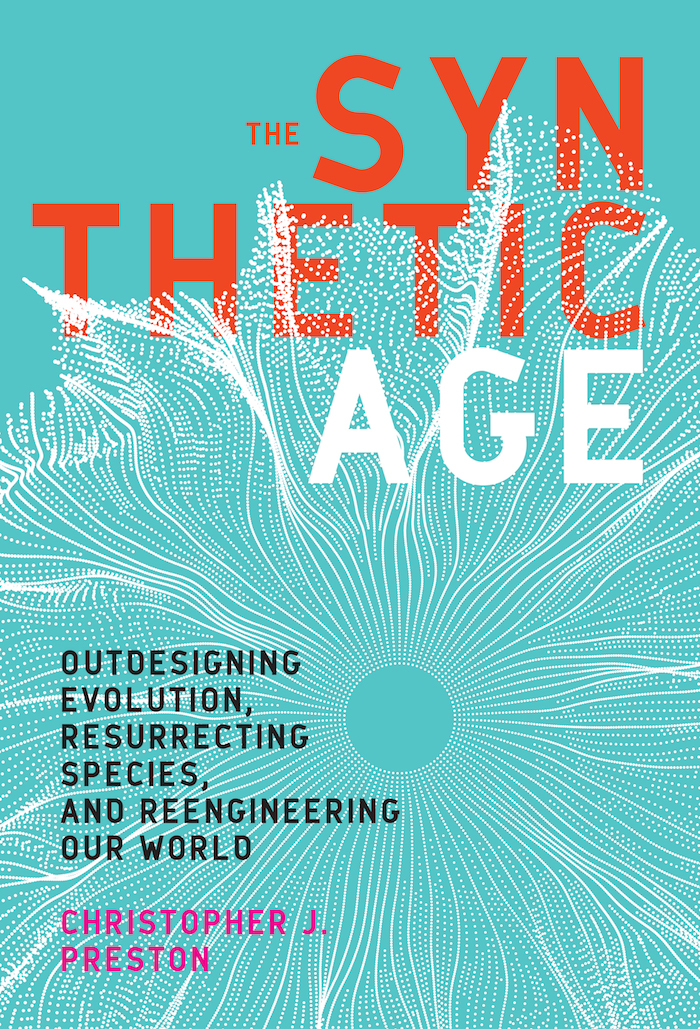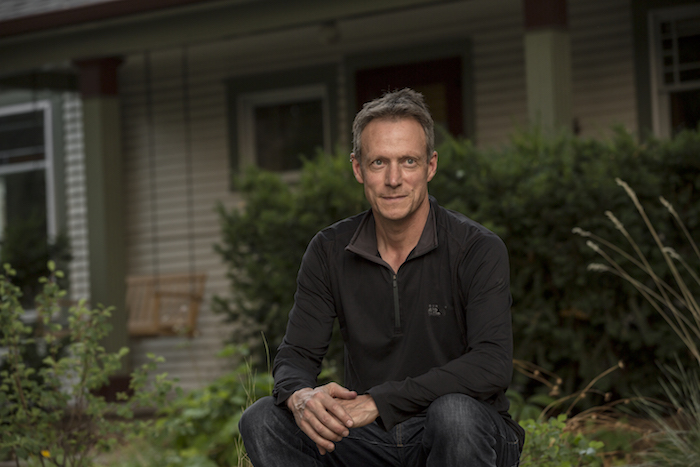
Christopher Preston is a philosopher at the University of Montana, but he’s originally from England. Moving to the American West changed him. “First I was in Colorado and then Alaska and Oregon. Here I was having encounters with spectacular charismatic animals and elemental processes like glaciers grinding through valleys.”
His first week in the states he visited Rocky Mountain National Park, where he puzzled over a strange, twisted object on the ground that turned out to be a dead pine tree “100 years into its decomposition process,” he says. “In England, no one lets a tree decompose for 100 years.” Preston found himself impressed by “The moral weight of these historic processes,” and paying special philosophical attention to natural things and places ruled by forces shaped by millions of years of geology and evolution. “There is some sort of moral significance to the history, to the deep time,” he says.
But as Preston was coming to appreciate the wild world, he also mulling over our species’ massive influence on nature: moving species from continent to continent, turning land under the plow, polluting land and sea, and changing the climate. Our influence has become so pervasive and impossible to miss that some people are calling our era “the Anthropocene”—the epoch of man. And it alarmed Preston to hear that many proposed solutions to problems of the Anthropocene were to intervene more in nature, not less.
So Preston began working on what became The Synthetic Age, newly out from MIT Press. The book rounds up some of these proposed environmental technologies, from geo-engineering to slow or reverse climate change to using synthetic organisms and nanotechnology to fight pollution and save species. His book argues that the decision about whether to dive headfirst into these technologies should be taken incredibly seriously and that caution should be the order of the day.
Because I have argued that we ought to intervene in nature where necessary to save species, Preston critiqued my work a bit in his book, making the case that I was too ready to rush in and start fiddling with ecosystems. (In my defense, I do think that a lot of land should be left unmanaged, though I don’t think that amounts to “not intervening.” Rather, lack of active management of nature allows our unconscious, unintended interventions, like introductions of nonnative species and changes to the climate to rule the day.)
Preston and I recently sat down for a bit of a chat about his new work.
Emma: So your book is called the Synthetic Age. Are ‘synthetic’ things all bad?
Christopher: It is a tempting line to take. But things like neonatal intensive care units are fantastic and natural things like poisons are not always good.
Emma: So what are you worried about then?
Christopher: I’m not against the synthetic so much as I am in favor of making a considered choice whether or not to embrace these technologies. Up until now it has been an unintended screwup. And so the value of the Anthropocene term is: well here we are. What we do from here on should be more thoughtful and more intentional. Some of that should involve withdrawing and restoring and repairing.
Emma: Let’s look at an example. What about efforts to use genetic engineering to restore the iconic chestnut to Eastern forests now that it has almost been wiped out by a fungal disease we humans introduced?
Christopher: Restoring the chestnut restores a whole ecosystem—a whole set of ways of life—and supports other species. That could potentially be desirable. But I think it would be different to walk through a forest and say ‘hey, every single one of these trees have been genetically modified.’ I think that would be disappointing for people because somebody else decided it would look that way. I just don’t think that should be a decision that should be made for us by a particularly keen geneticist.
Emma: I guess I feel that if we don’t restore the chestnut when we have the ability to do so then that isn’t natural either. It is also a choice somebody made.
Christopher: My natural inclination in these kinds of cases is to wait for nature to do it itself, provided that there are enough trees out there that have natural resistance. I could be talked into the slightly altered chestnut, though.

Emma: So you aren’t against any technological intervention in nature.
Christopher: Definitely not. But some of the Anthropocene rhetoric has been overly confident and as you yourself wrote in your essay Humility and the Anthropocene, some of these folks end up sounding like assholes. I think there is a space for a counterpoint to the Anthropocene discourse that is informed by the necessity of making decisions but a little less enthusiastic about technology and intervention.
Emma: Are there any examples of societies jointly deciding not to use technologies?
Christopher: Yes, there’s Human cloning. For whatever reason, we react pretty strongly to that and we say no. I think there are cases where people say no and where we should say no. I am particularly worried about the technologies that will be developed for commercial reasons and not for public good reasons. I don’t want synthetic organisms everywhere because people want to get rich off them.
Emma: I think that’s a good point. I tend to get jazzed about the scientific possibilities but often new technologies turn out to benefit shareholders and the CEO class more than working people or the environment—and I think that was a big reason why GMOs became so reviled on the left even though they are safe to eat.
Christopher: One interesting thing about climate engineering is that researchers have said that if we were going to interrupt the sun we should only do it as a public good and not for profit.
Emma: Even if I am a bit more hopeful about technology, I think we agree on a lot. We agree that the human influence captured by the “Anthropocene” label means we have responsibility to the planet. And we both agree that deciding how to proceed should be something everybody participates in.
Christopher: Yes. Before we give the scientists free range, lets get some citizen input into what they think is best. These can’t just be questions that are left to the experts.
One thought on “In the “Synthetic Age,” can technology save nature?”
Comments are closed.